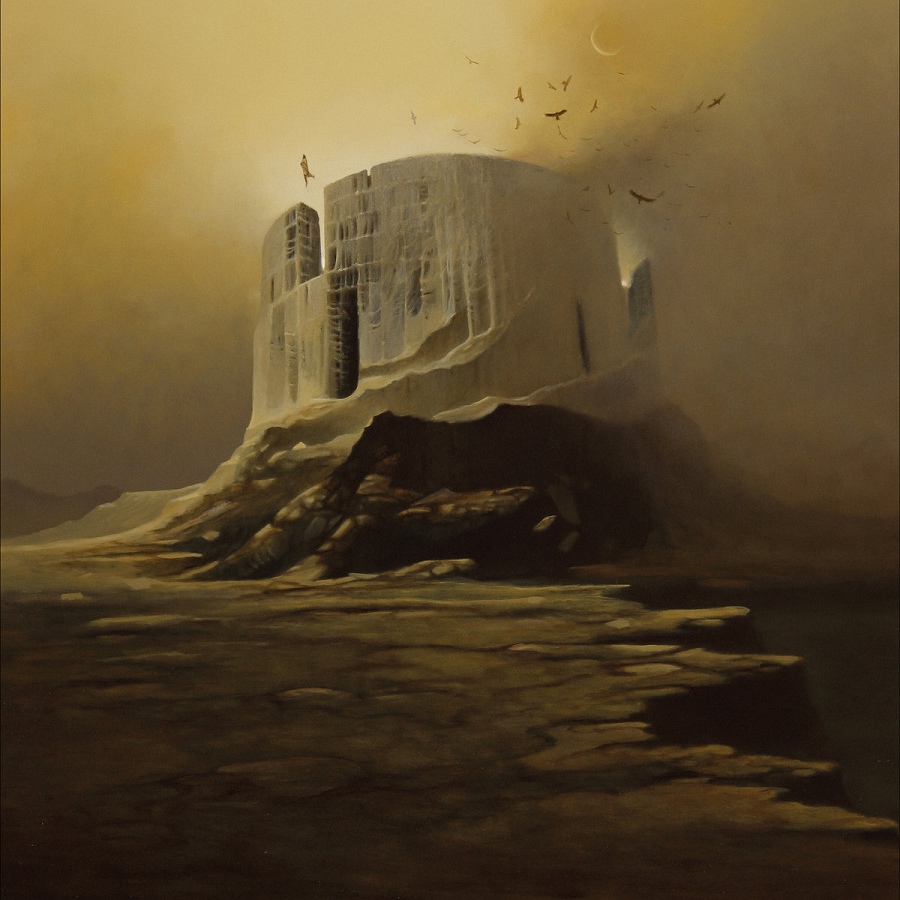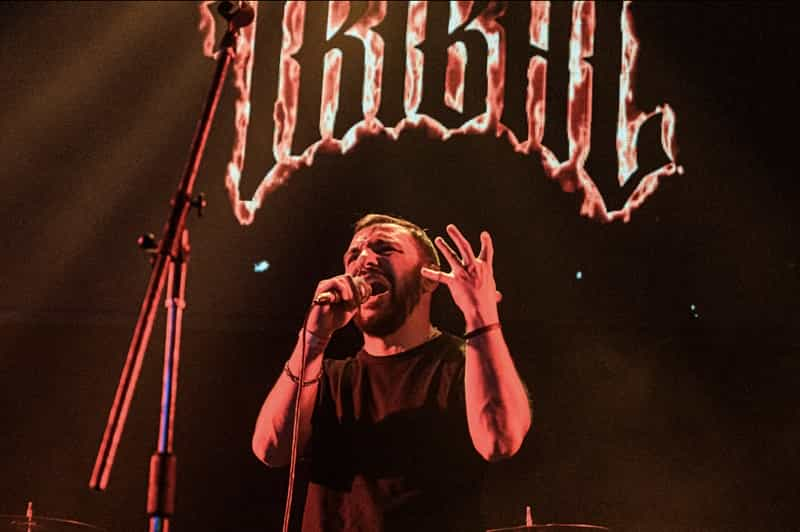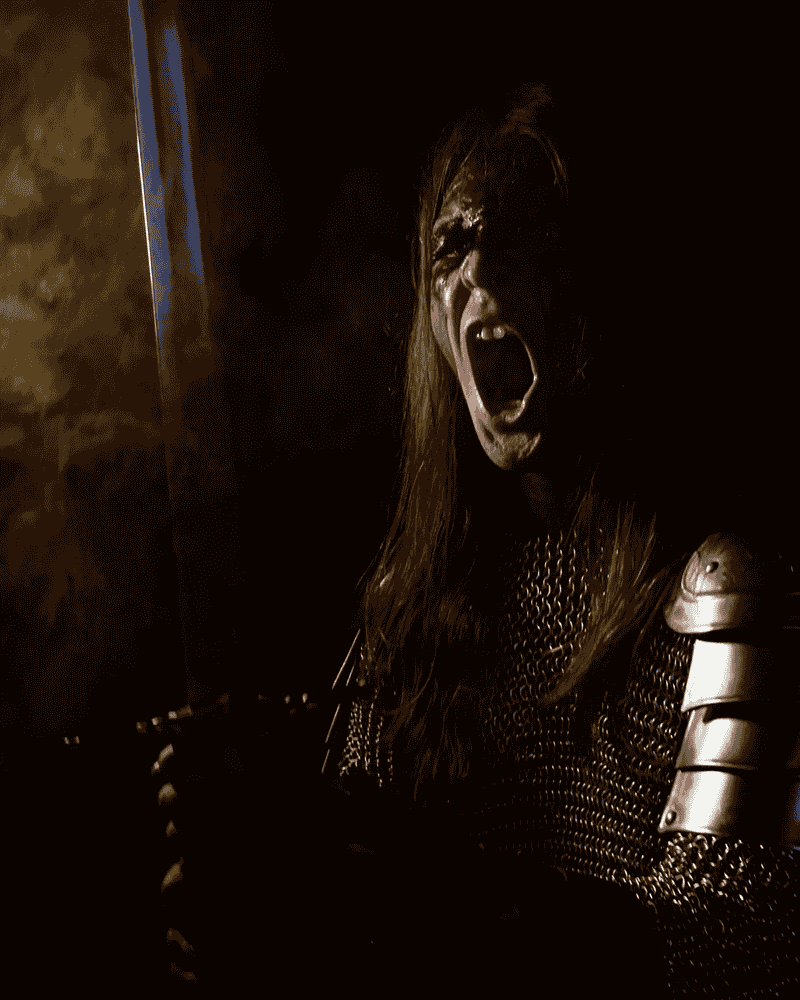#Dakhma 🇨🇭 #Interview

Dakhma is a Swiss extreme metal band, with elements of death and black metal and a fascination with Persian mythology. The band promote their style as Zoroastrian Death Music. The proof of the pudding is in the eating, they say, and this dish tastes real good. With the band’s latest offering Blessings of Amurdad landing towards the end of the year like a mighty hammer from the heavens I caught up with Karapan Darvish to get some insight on what they do and their inspirations.
Thanks for agreeing to this interview for Blessed Altar Zine. First off, who is Dakhma and what does each member contribute to the band?
KD: Dakhma consists of two individuals, myself and Ahu Spozgar. As pertains to instrumentation, I play guitars, bass, as well as all acoustic instruments we use and lend my voice to the recordings. Ahu Spozgar performs all percussion and has contributed additional vocalisations to “Blessings of Amurdad”. We create the songs together. Up to this point, I have recorded demos of the songs with somewhat pre-defined ideas for the instrumentation, however, we rehearse the material thoroughly in order for it to develop to its fullest potential and end up changing the musical structure regularly. In doing so, Ahu Spozgar plays an integral part in crafting what become our final recordings.
Zoroastrianism is referenced in everything from the band’s name to your artwork and lyrics. What is it about Zoroastrianism and Persian mythology that holds such importance for the band?
KD: It is our primary source of inspiration and serves as the vehicle through which we wish to express ourselves in Dakhma. It is, as we find, a worthwhile endeavor, considering the depth of thought and perspective contained in many Zoroastrian texts. If you delve into Zoroastrianism even slightly, I’m sure it won’t be difficult to understand where our fascination comes from.
You’ve just released your third album, Blessings of Amurdad, how was the recording process and how happy are you with the record?
KD: I’ll allow myself a slight correction: this is our second full-length album. We are extremely happy with how the record came out and I am personally convinced it is our most ambitious and complete work to date. The recording process was rather intense and more involved than anything we had done previously. We engineer and record all of our material ourselves with our somewhat limited, but nevertheless passionate methods. For “Blessings of Amurdad”, I had a very strong sense of the sound I wanted the record to have and I believe we achieved that sound to the best of our abilities. I felt the material called for a more “direct”, dare I say “clearer” sound, in order for the material to be presented accurately and in a way that best reflected what is going on in the music. To achieve the right sound, it required a lot of trial and error in the recording process. Actually being satisfied with the final recordings is all the more pleasing.

How do you think the band has evolved since your earliest recordings?
KD: Dakhma has evolved significantly since the first recordings, and I can’t say I’m surprised when people tell me they find it hard to believe this is the same band. Naturally, Ahu Spozgar joining as a full member and turning Dakhma into a two-piece will have to be considered the most significant development. For me, there are certain things ingrained in this project that serve as a form of “red line” that can be drawn from our earliest recordings to the music we create now, and sonically, listeners going through our discography will be able to follow a clear path of development in our music over time. Personally, I believe there is strong merit to progression and development, anything else is regression.
Can you tell us a bit about the Helvetic Underground Committee and Dakhma’s role in it?
KD: The Helvetic Underground Committee consists of few individuals who work together on creative endeavors. Occasionally, we lend each other support on individual endeavors, primarily in the realm of audio or visual design, which can range from recording to mixing to creating artwork or the layout for a particular release. Furthermore, certain “key” members share membership in several affiliated projects. Dakhma is one of these projects.
How did Dakhma first come together and what other experience do the members have of playing in other bands?
KD: I spawned Dakhma from a rancid tomb when I was living in Paris, so we never really “came together”. For my part, my musical experience in other bands consists of several H.U.C. entities, primarily Lykhaeon and Arkhaaik. Ahu Spozgar plays actively in several H.U.C. entities and is vitally important for the acclaimed Tardigrada.
What were your earliest musical influences when you first decided to pick up an instrument and what inspires the band now musically?
KD: My first experience with an instrument was playing the violin, which I continued to play from early childhood onward for ca. 14 years. I picked up guitar at some point in my teens and developed a keen interest in the instrument then, although currently I would say my “favorite” instrument to play is definitely drums, although my technical abilities are somewhat limited. As for songwriting and composition, I have come to enjoy bass guitar very much for the flexibility and depth it can provide to a certain part or whole song. As for what inspires the band musically at the moment, I can’t really point to anything specific. Inspiration comes when the time is right and when it does, it rages with the fire of a thousand suns.
Are there any books, art or movies that have been a recent inspiration (not necessarily directly influencing the band, but just generally in life)?
KD: As a rabid Nicolas Cage fan, I thoroughly enjoyed the film “Pig”. I will be rewatching the all-time great “There Will Be Blood” soon as well, which I’m greatly looking forward to.
For our readers, what’s one book and one record they might not be familiar with that you’d recommend they check out?
KD: For a book, I would recommend The Gathas. As for a record, I would recommend the last DSKNT album “Vacuum γ-Noise Transition”, a fantastic work of inhumane depth and punishment.
Are there plans for the band to play live in the coming months to promote the new album?
KD: We have two shows scheduled for 2022 so far, the first being in our hometown of Zürich for the “Eros at Arms” fest, followed by Hamburg in June. We hope things go as planned and this can all take place.
Thanks for your questions.
Thanks to Karapan for his time. Blessings of Amurdad is out now on Eisenwald. Follow the band on social media to stay up to date with their latest news and releases and all in the world of Dakhma.
Band
Bandcamp
Facebook
Instagram
Label
Bandcamp
Facebook
Instagram
Twitter
Webstore
YouTube
**Please support the underground! It’s vital to the future of our genre.**
#WeAreBlessedAltarZine
#TheZineSupportingTheUnderground


